
Bandipur: A Timeless Himalayan Haven
Bandipur, a quaint hilltop town in Nepal, evokes the charm of a bygone era. Perched on a ridge at an altitude of 1,030 meters, this picturesque destination offers stunning views of the Himalayas. Once a bustling stop on the India-Tibet trade route, Bandipur has gracefully preserved its heritage and culture. The town is adorned with traditional Newari architecture, narrow winding streets, and ancient temples. Walking through Bandipur feels like stepping back in time, where every corner reveals a piece of history. Nature lovers will find Bandipur a paradise. Surrounded by lush forests and terraced fields, the town is a gateway to numerous hiking trails and outdoor adventures. The Siddha Cave, one of the largest caves in Nepal, is a must-visit for its awe-inspiring formations. The Thani Mai Temple offers a vantage point for breathtaking sunrise views over the Himalayas. Bandipur's serene environment makes it an ideal spot for relaxation and meditation. The local culture and hospitality in Bandipur are heartwarming. The town hosts various festivals and cultural events, giving visitors a chance to experience traditional Newari music, dance, and cuisine. The main bazaar is a vibrant mix of shops, cafes, and guesthouses, where tourists can enjoy local delicacies and interact with friendly locals. Bandipur's commitment to eco-tourism ensures that its natural beauty and cultural heritage remain unspoiled for future generations.
Local tips in Bandipur
- Visit early in the morning or late in the afternoon for the best views of the Himalayas.
- Wear comfortable walking shoes as the town's streets are cobbled and hilly.
- Try local Newari dishes like 'Yomari' and 'Samay Baji' for an authentic culinary experience.
- Bring a flashlight if you plan to explore the Siddha Cave.
- Respect local customs and traditions, especially when visiting temples and cultural sites.
Bandipur: A Timeless Himalayan Haven
Bandipur, a quaint hilltop town in Nepal, evokes the charm of a bygone era. Perched on a ridge at an altitude of 1,030 meters, this picturesque destination offers stunning views of the Himalayas. Once a bustling stop on the India-Tibet trade route, Bandipur has gracefully preserved its heritage and culture. The town is adorned with traditional Newari architecture, narrow winding streets, and ancient temples. Walking through Bandipur feels like stepping back in time, where every corner reveals a piece of history. Nature lovers will find Bandipur a paradise. Surrounded by lush forests and terraced fields, the town is a gateway to numerous hiking trails and outdoor adventures. The Siddha Cave, one of the largest caves in Nepal, is a must-visit for its awe-inspiring formations. The Thani Mai Temple offers a vantage point for breathtaking sunrise views over the Himalayas. Bandipur's serene environment makes it an ideal spot for relaxation and meditation. The local culture and hospitality in Bandipur are heartwarming. The town hosts various festivals and cultural events, giving visitors a chance to experience traditional Newari music, dance, and cuisine. The main bazaar is a vibrant mix of shops, cafes, and guesthouses, where tourists can enjoy local delicacies and interact with friendly locals. Bandipur's commitment to eco-tourism ensures that its natural beauty and cultural heritage remain unspoiled for future generations.
When is the best time to go to Bandipur?
Iconic landmarks you can’t miss
Tundikhel, Bandipur
Discover the enchanting beauty of Tundikhel in Bandipur, where breathtaking Himalayan views and rich cultural experiences await every traveler.
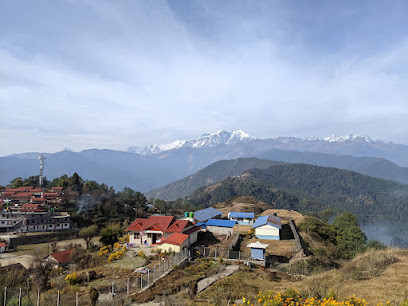
The Old Inn Bandipur (Rural Heritage Pvt. Ltd.)
Discover the charm of Bandipur at The Old Inn, where traditional hospitality meets breathtaking views in a serene mountain setting.
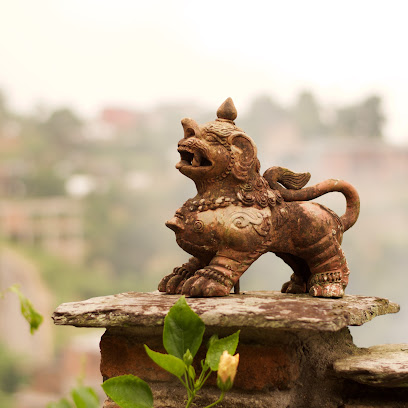
Siddha Gufa (Cave) Bimal Nagar
Discover the enchanting Siddha Gufa in Bimal Nagar, a stunning natural cave filled with unique geological formations and rich cultural significance.

Bandipur Adventure Camp
Discover adventure, comfort, and culture at Bandipur Adventure Camp – your gateway to an unforgettable experience in the heart of Nepal.

Thani mai
Discover breathtaking views and serene landscapes at Thani Mai, the perfect observation deck in Bandipur, Nepal.
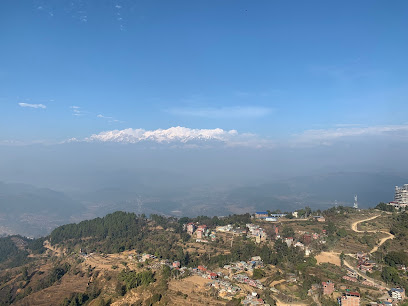
Bandipur Village Resort
Experience authentic Nepalese hospitality at Bandipur Village Resort, where stunning views meet rich cultural heritage in a serene village setting.

Bandipur Mountain Resort
Experience the tranquility and breathtaking views of Bandipur Mountain Resort, a perfect escape into nature's embrace.

The Samay Baji
Discover authentic Nepali flavors at The Samay Baji, a charming restaurant in Bandipur offering a unique culinary experience amidst stunning landscapes.
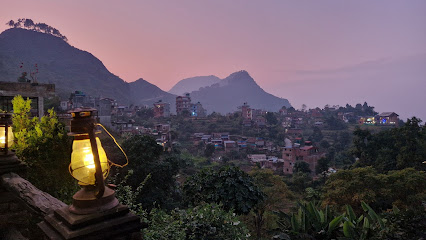
Old House Cafe
Experience the essence of Nepali culture at Old House Cafe, a charming spot in Bandipur offering stunning views and delicious local cuisine.
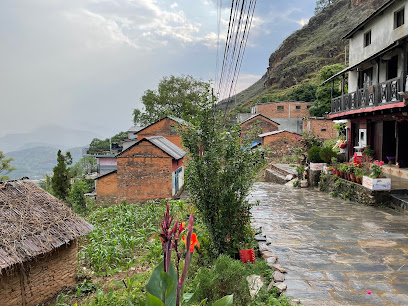
Himchuli Guest House
Discover the charm of Bandipur at Himchuli Guest House; a perfect blend of comfort, culture, and stunning Himalayan views.

Bandipur Eco Hotel Pvt. Ltd
Experience the tranquility of nature at Bandipur Eco Hotel, your eco-friendly retreat in the heart of Nepal's stunning landscape.
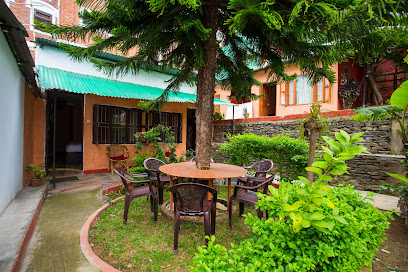
Bandipur Chhen
Experience the tranquility and cultural richness of Bandipur Chhen, your perfect hotel retreat in the heart of Bandipur, Nepal.

Khadga devi
Experience the spiritual tranquility and unique architecture of Khadga Devi Temple in Bandipur, a must-visit Hindu temple in Nepal.
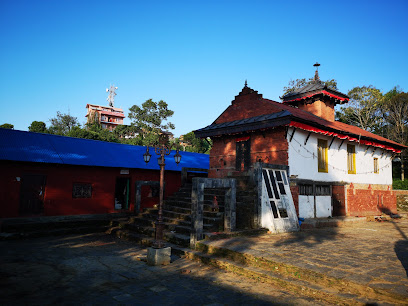
Tindhara
Discover the serene beauty and spiritual significance of Tindhara, a sacred Hindu temple nestled in the heart of Bandipur's stunning landscapes.
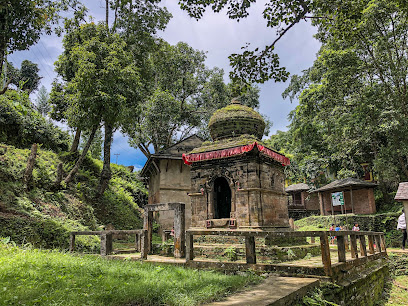
Bandipur bindabasini homestay
Discover the magic of Bandipur at Bindabasini Homestay, where traditional hospitality meets stunning Himalayan views in a serene atmosphere.
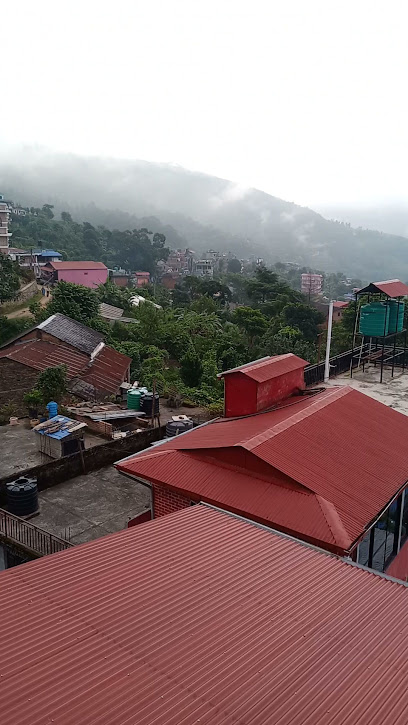
Unmissable attractions to see
Manakamana Temple
Experience the divine at Manakamana Temple, a majestic Hindu shrine in Nepal offering breathtaking views and spiritual enrichment.
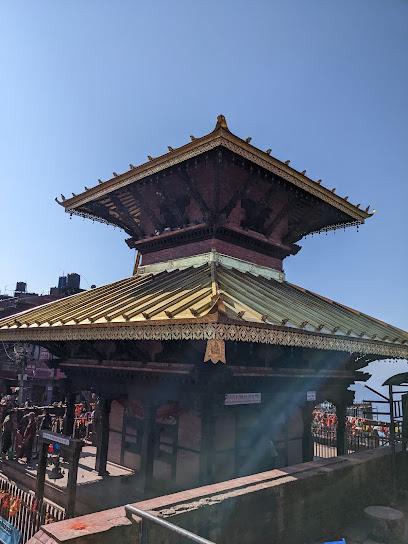
Chitwan National Park
Discover the breathtaking wildlife and rich cultural heritage of Chitwan National Park, a must-visit destination in Nepal for nature lovers and adventurers.
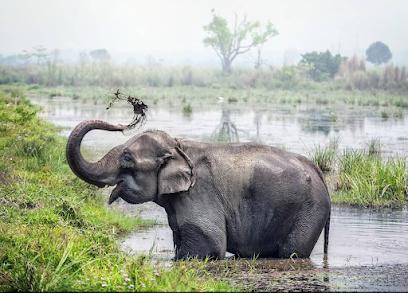
Begnas Lake
Experience the beauty and tranquility of Begnas Lake in Lekhnath, Nepal – a serene haven for nature lovers and adventure seekers alike.
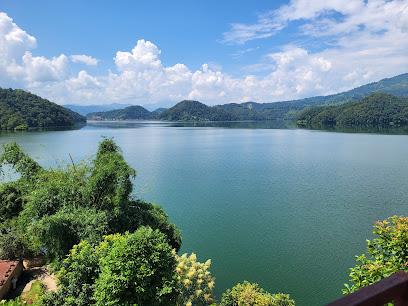
Gorkha Palace
Explore Gorkha Palace, a historical treasure in Nepal, showcasing stunning architecture and breathtaking views of the Himalayas.
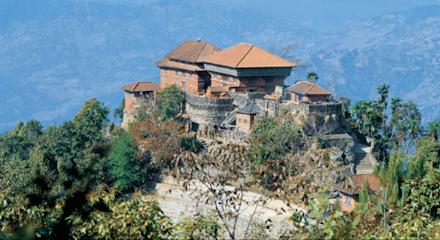
Bandipur Bazar बन्दीपुर बजार
Discover the lively atmosphere and rich culture of Bandipur Bazar, a vibrant market nestled in the hills of Nepal, offering local crafts and delicious cuisine.
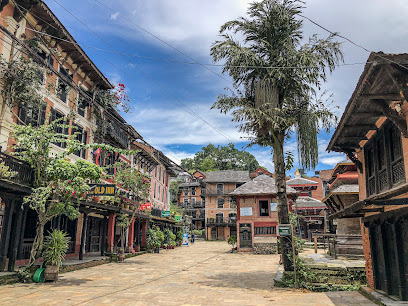
Chitwan National Park (Sauraha)
Explore the diverse wildlife and breathtaking landscapes of Chitwan National Park, a UNESCO World Heritage Site, in the heart of Nepal.
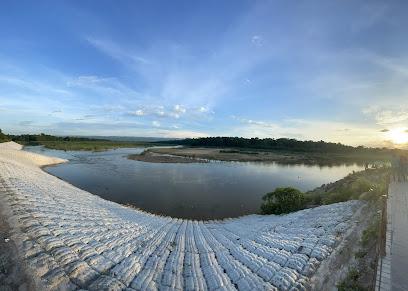
Gorkha Museum
Explore the Gorkha Museum, a cultural gem in Nepal showcasing the rich heritage and history of the Gorkha Kingdom through diverse exhibits.
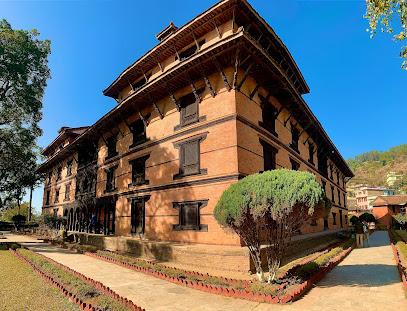
New Sauraha Tharu Cultural House
Explore the vibrant Tharu culture at New Sauraha Tharu Cultural House, offering authentic experiences through performances and exhibits in Chitwan, Nepal.

Rupa Lake
Discover the beauty of Rupa Lake, a serene destination in Nepal, perfect for nature lovers, adventure seekers, and photographers alike.
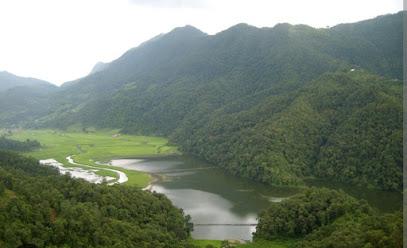
Tharu Cultural Museum & Research Center
Delve into the vibrant Tharu culture at the Tharu Cultural Museum & Research Center, a captivating experience for all visitors in Ratnanagar, Nepal.
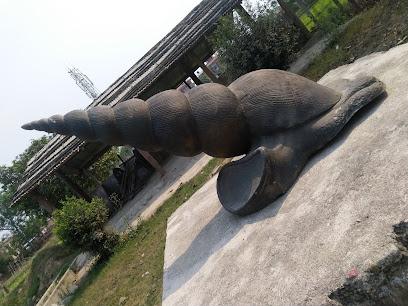
Thani mai
Discover the breathtaking views of Bandipur from Thani Mai, the ultimate observation deck for nature lovers and adventure seekers.
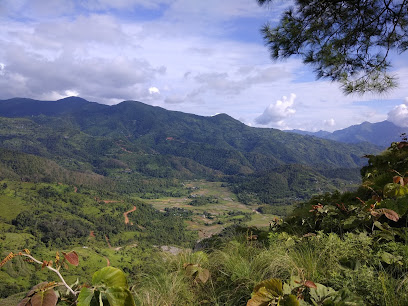
Himalayan Golf Course
Discover the Himalayan Golf Course in Pokhara - a golfer's haven surrounded by breathtaking Himalayan vistas and serene landscapes.
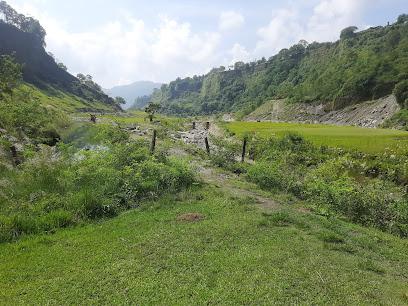
Khadga devi
Explore the serene beauty and spiritual richness of Khadga Devi Temple in Bandipur, a must-visit destination for cultural and spiritual seekers.
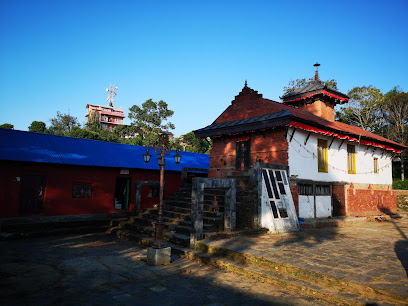
Tindhara
Experience the tranquility and spiritual essence of Tindhara, a serene Hindu temple nestled in the breathtaking landscapes of Bandipur, Nepal.
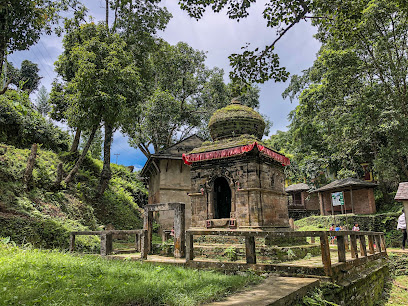
Shree Gorakhnath Temple
Explore the serene Shree Gorakhnath Temple in Gorkha Bazar, a stunning symbol of Hindu faith and cultural heritage nestled in Nepal's majestic mountains.
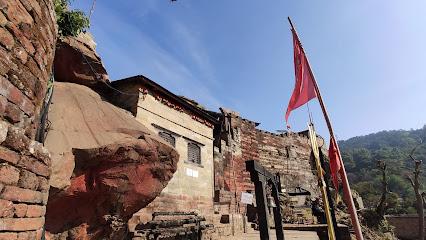
Essential places to dine
Marsyangdi River View Resort
Discover unparalleled tranquility at Marsyangdi River View Resort - your perfect getaway in Bandipur with stunning river views and exquisite dining.
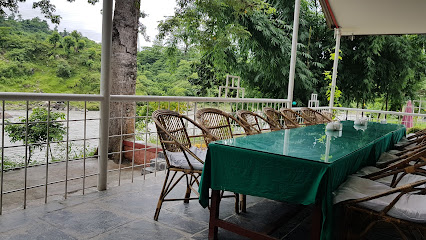
Bandipur Village Resort
Experience traditional Newari hospitality at Bandipur Village Resort amidst stunning landscapes in Nepal.

The Samay Baji
Discover authentic Nepali flavors at The Samay Baji in Bandipur - a culinary gem showcasing traditional dishes amidst breathtaking views.
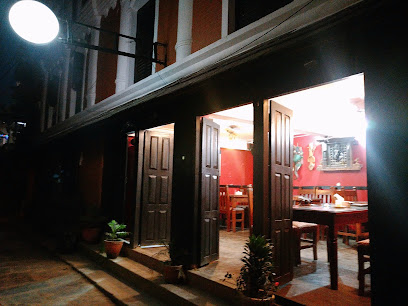
Hotel Mustang Plaza
Experience comfort and local flavors at Hotel Mustang Plaza in Bandipur – your perfect getaway destination.
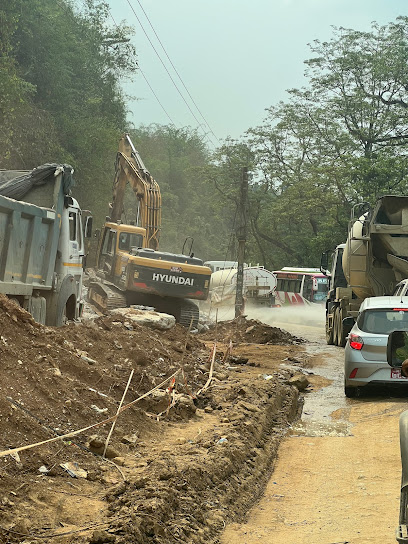
Nayapool Resturant and Lodge
Experience authentic Nepali flavors at Nayapool Restaurant and Lodge in scenic Bandipur.
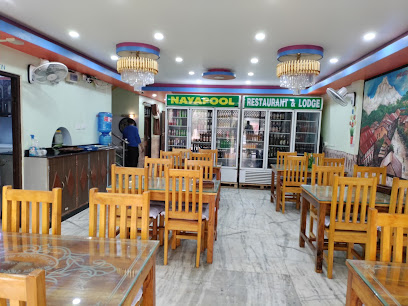
Cafe Red Castle
Discover Café Red Castle in Bandipur – where delicious food meets stunning Himalayan views in an inviting atmosphere.
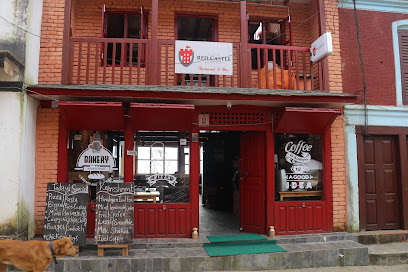
Bandipur Bahidar Cafe
Discover authentic Nepali cuisine at Bandipur Bahidar Cafe in Kathmandu - where flavor meets breathtaking views.
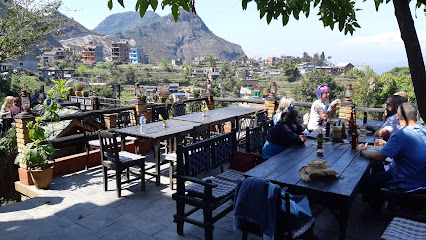
Khaja Cafe
Experience authentic Nepalese cuisine at Khaja Cafe in Bandipur – where every meal tells a story.
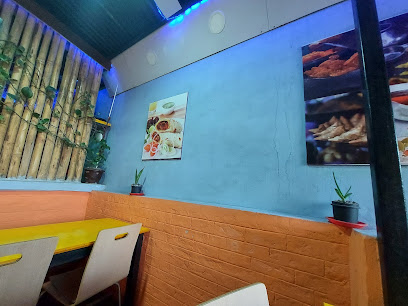
Cafe Active Ant Bandipur Best Organic Restaurant & Cafe
Experience organic flavors at Café Active Ant in Bandipur – where local ingredients meet culinary creativity.
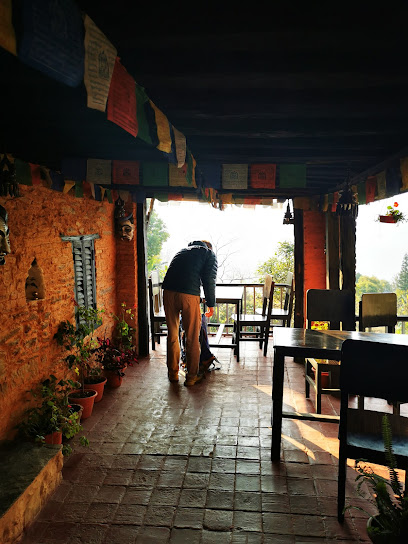
Pratiksha Restaurant & Sweet House
Discover authentic Nepali flavors at Pratiksha Restaurant & Sweet House in Bandipur – where every meal tells a story.
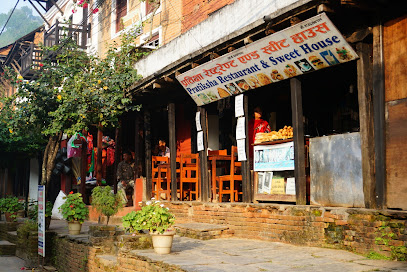
Falcha Food & Drink
Experience authentic Nepali flavors at Falcha Food & Drink in Bandipur – where great food meets stunning views.
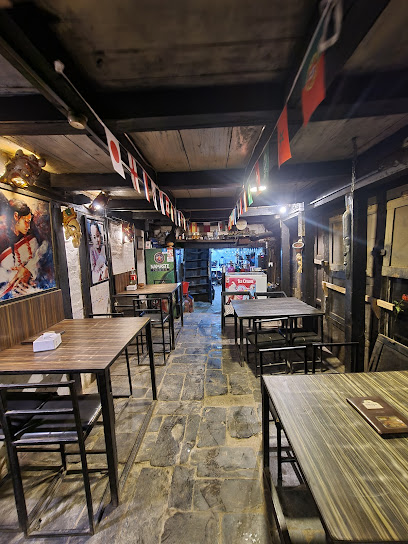
Highway Hotel
Discover comfort and culinary delights at Highway Hotel in Bandipur - your gateway to Nepal's stunning landscapes and rich culture.
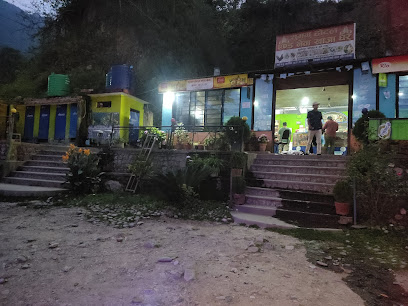
Samsara Bandipur
Discover authentic Nepalese flavors at Samsara Bandipur - where tradition meets taste in the heart of beautiful Bandipur.
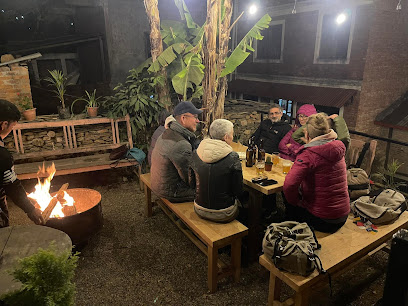
Rana bhojanalaya and staff khaja ghar
Discover authentic Nepalese flavors at Rana Bhojanalaya and Staff Khaja Ghar in scenic Bandipur.
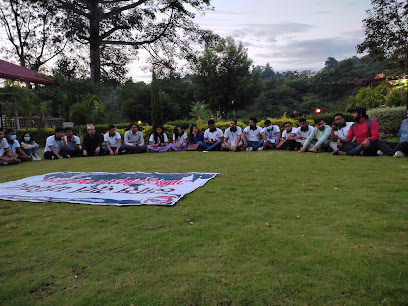
Dalle sahu ko Khana ghar
Discover authentic Nepali cuisine at Dalle Sahu Ko Khana Ghar in Bandipur – where tradition meets flavor amidst stunning mountain views.
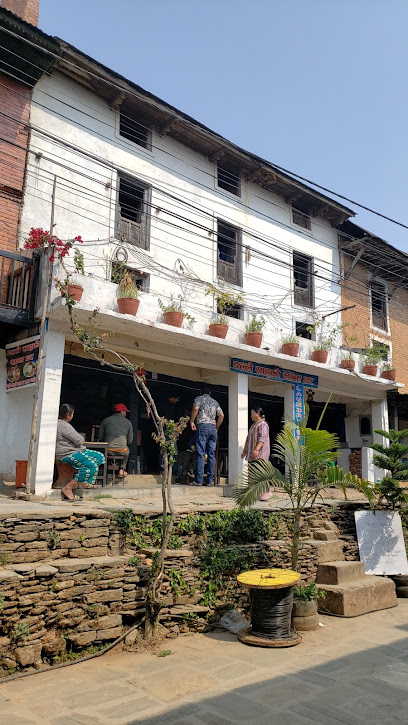
Markets, malls and hidden boutiques
Bandipur Bazar बन्दीपुर बजार
Discover the vibrant culture and local flavors at Bandipur Bazar, a charming market in the heart of Nepal.
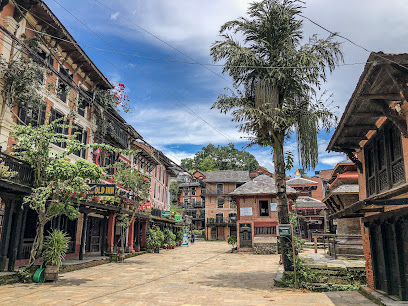
The Old Inn Bandipur (Rural Heritage Pvt. Ltd.)
Experience the charm of Bandipur at The Old Inn, where traditional Nepali hospitality meets stunning mountain views.
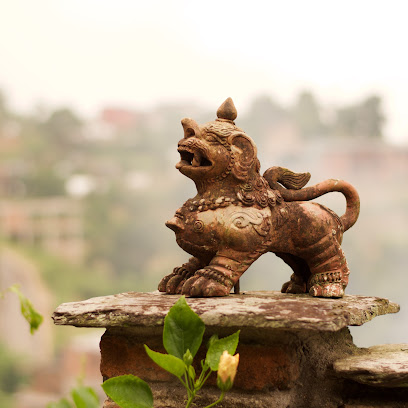
Siddha Gufa (Cave) Bimal Nagar
Discover the enchanting Siddha Gufa in Bimal Nagar, where natural beauty meets rich cultural heritage, perfect for adventurers and nature lovers!
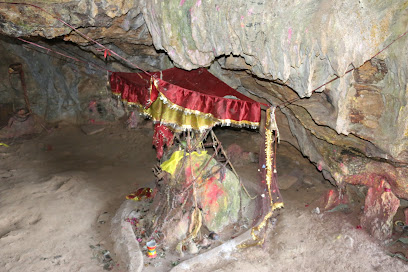
Bandipur Adventure Camp
Experience adrenaline-pumping adventure sports and serene nature at Bandipur Adventure Camp, where the beauty of the Himalayas meets thrilling outdoor activities.

Thani mai
Experience the breathtaking views of Bandipur from Thani Mai Observation Deck, a serene spot for sunrise, sunset, and paragliding adventures.
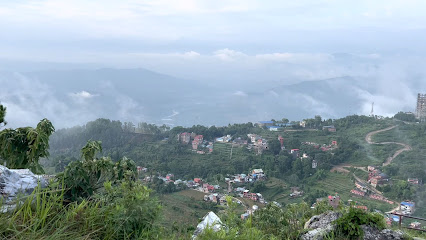
The Samay Baji
Experience the authentic taste of Nepali cuisine at The Samay Baji restaurant in Bandipur, where tradition meets flavor in a stunning setting.
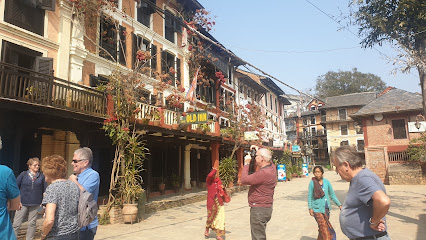
Himchuli Guest House
Discover the charm of Bandipur at Himchuli Guest House, where comfort meets local culture in a breathtaking setting.

Bandipur Chhen
Discover tranquility and cultural richness at Bandipur Chhen, a charming hotel nestled in the scenic hills of Bandipur, Nepal.

Tindhara
Discover the tranquil beauty of Tindhara, a serene Hindu temple in Bandipur, where spirituality meets nature's splendor.
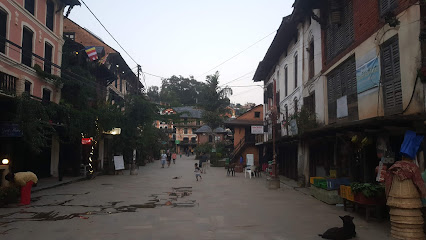
NEK STORE
Discover quality cosmetics, clothing, and footwear at NEK STORE in Bandipur, a vibrant marketplace reflecting Nepalese culture.
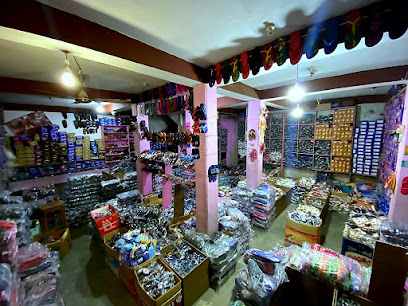
Mini Great Wall Bandipur
Discover the Mini Great Wall of Bandipur: A captivating blend of stunning views and rich cultural heritage in Nepal's picturesque hills.
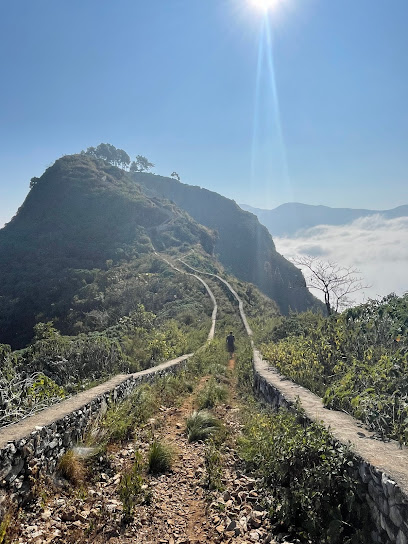
Unique Department Store
Explore the Unique Department Store in Lekhnath for a vibrant shopping experience filled with local crafts, delicious snacks, and unique souvenirs.
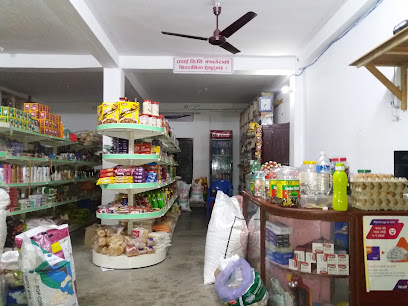
Aaja Ko Gift House
Discover cultural treasures at Aaja Ko Gift House in Bandipur, where local craftsmanship meets unique fashion and handmade gifts.
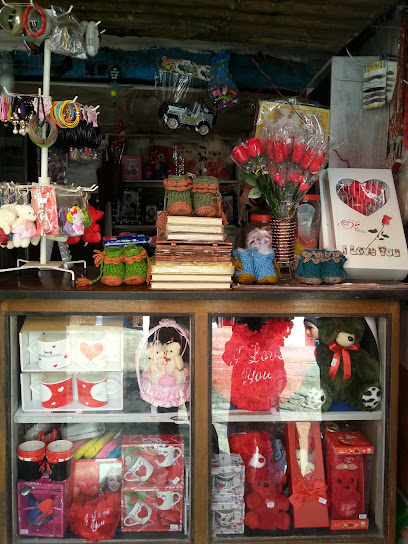
Bandipur, Nepal
Explore Bandipur, a serene hilltop village in Nepal adorned with stunning views, rich culture, and authentic Newari architecture.
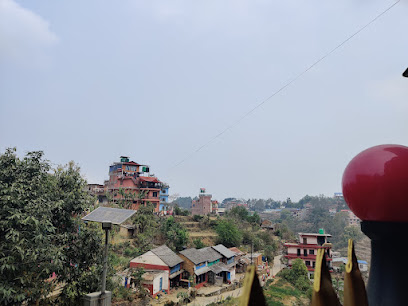
Bandipur Bazar Community
Experience the picturesque beauty and rich culture of Bandipur Bazar Community, a hidden gem in the heart of Nepal.
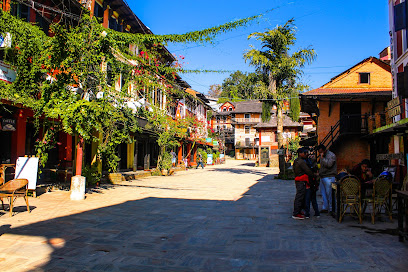
Essential bars & hidden hideouts
Marsyangdi River View Resort
Discover the serene beauty of Bandipur at the Marsyangdi River View Resort, where luxury meets nature along the tranquil riverbanks.
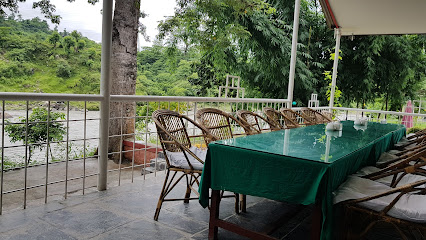
SUNSHINE HOTEL AND RESTAURANT BANDIPUR
Experience the charm of Bandipur at Sunshine Hotel and Restaurant, where comfort meets stunning mountain views and exquisite local cuisine.
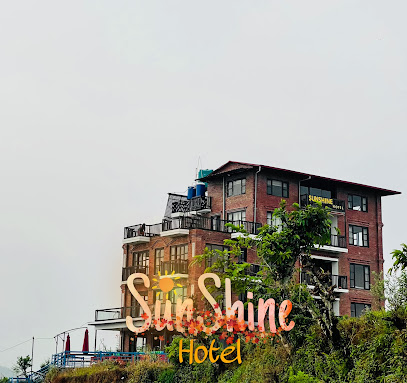
Hotel Aagaman -Best Family Hotel in Bandipur
Experience the warmth of family-friendly hospitality at Hotel Aagaman, your ideal base for exploring the enchanting town of Bandipur.
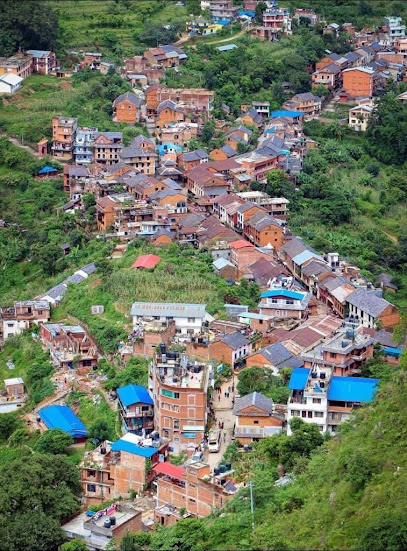
The Samay Baji
Experience the authentic flavors of Nepal at The Samay Baji, where every dish tells a story of tradition and culture.
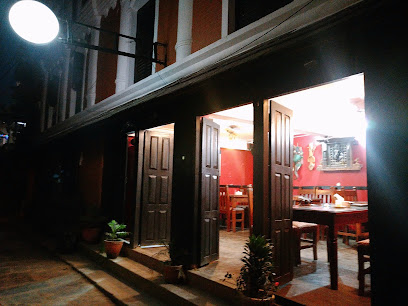
Hotel Mustang Plaza
Discover the charm of Bandipur at Hotel Mustang Plaza - a perfect blend of comfort, culture, and cuisine.
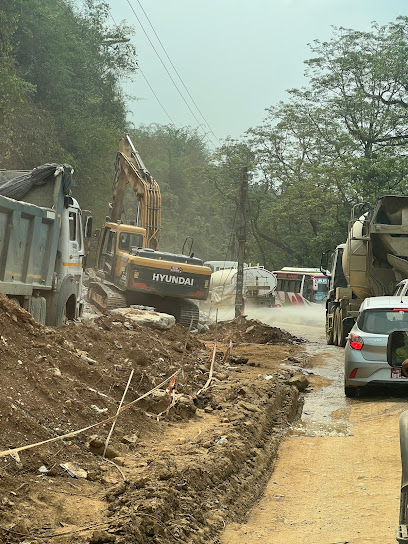
Cafe Red Castle
Discover the flavors of Bandipur at Café Red Castle, where local cuisine meets stunning views and a cozy atmosphere.
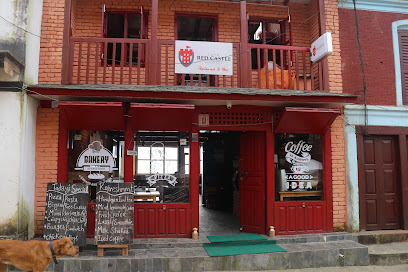
Bandipur Bahidar Cafe
Discover the flavors of Nepal at Bandipur Bahidar Cafe, where every dish tells a story of culinary heritage.
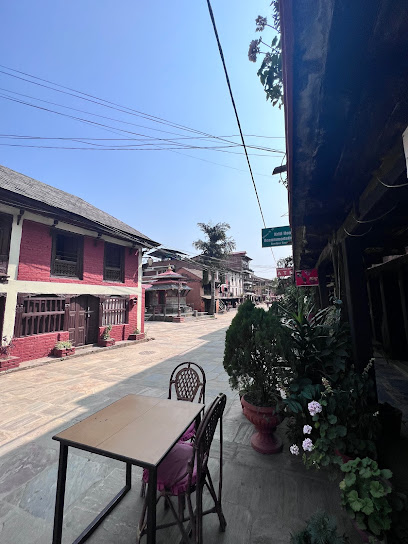
Khaja Cafe
Experience the authentic flavors of Nepal at Khaja Cafe in Bandipur, where local cuisine meets warm hospitality and stunning views.
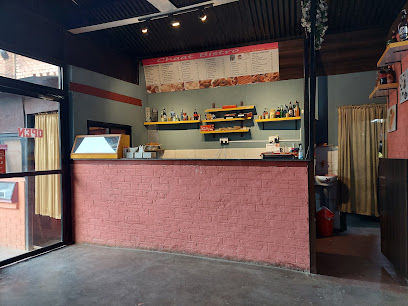
Hotel Bandipur Palace
Discover comfort and tradition at Hotel Bandipur Palace, your ideal retreat in the heart of Bandipur, Nepal.

Hill's Heaven Guest House
Discover the serene beauty of Bandipur at Hill's Heaven Guest House – your perfect retreat in the heart of the Himalayas.
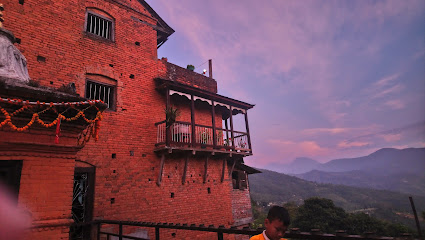
Pratiksha Restaurant & Sweet House
Discover the authentic taste of Nepal at Pratiksha Restaurant & Sweet House in Bandipur, a must-visit for food lovers.
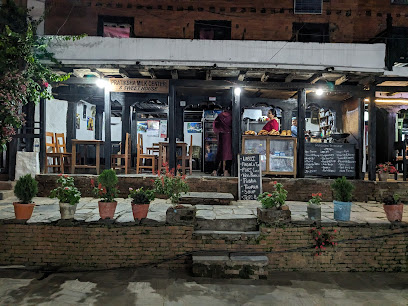
Falcha Food & Drink
Experience the culinary charm of Bandipur at Falcha Food & Drink, where local flavors meet international cuisine in a scenic setting.
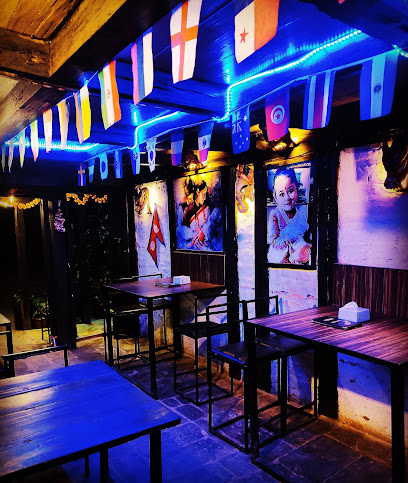
Unique Hotel And Lodge
Experience the serenity of Bandipur at Unique Hotel And Lodge, a charming bed and breakfast blending comfort with local culture in the heart of Nepal's scenic landscapes.
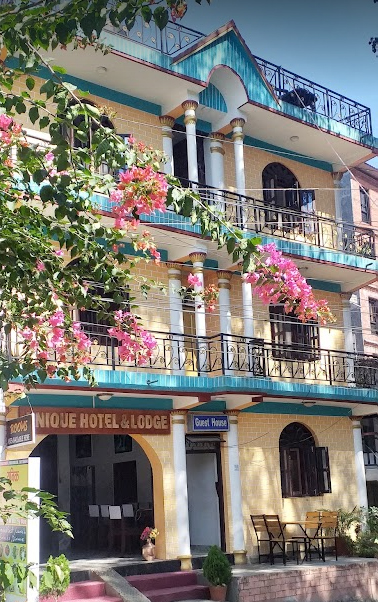
Dalle sahu ko Khana ghar
Experience authentic Nepali flavors and stunning views at Dalle Sahu Ko Khana Ghar in Bandipur, a delightful culinary adventure awaits you.
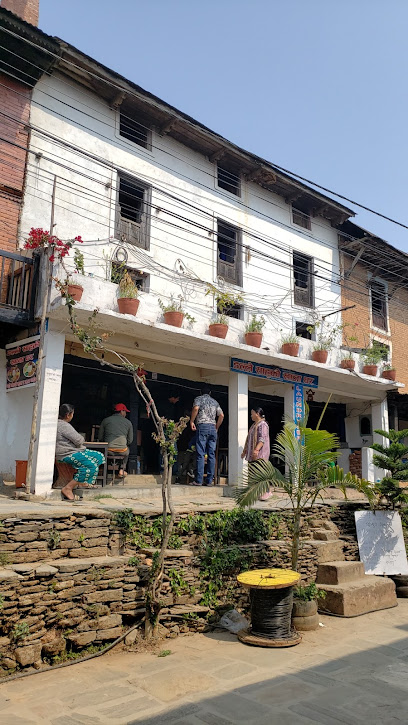
Bandipur Bamboo Cottage
Experience the tranquility of Bandipur Bamboo Cottage, where traditional Nepalese charm meets stunning Himalayan views, perfect for every traveler.
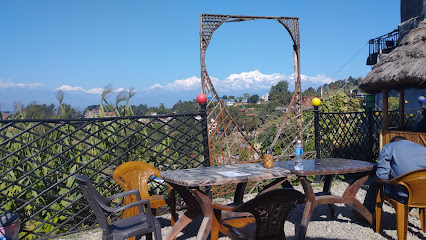
Local Phrases
-
- Helloनमस्ते
[namaste] - Goodbyeफेरी भेटौं
[feri bhetau] - Yesहो
[ho] - Noहोइन
[hoin] - Please/You're welcomeकृपया
[kripaya] - Thank youधन्यवाद
[dhanyabad] - Excuse me/Sorryमाफ गर्नुहोस्
[maaf garnuhos] - How are you?तिमीलाई कस्तो छ?
[timilai kasto cha?] - Fine. And you?राम्रो छ। तिमी?
[ramro cha. timi?] - Do you speak English?तिमी अंग्रेजी बोल्न सक्नुहुन्छ?
[timi angreji bolna saknuhuncha?] - I don't understandमैले सम्झिन्न
[maile samjhinna]
- Helloनमस्ते
-
- I'd like to see the menu, pleaseकृपया मेनु हेर्न चाहन्छु
[kripaya menu hernu chahanchu] - I don't eat meatम सुन खाँदिन
[ma sun khandin] - Cheers!चियर्स!
[chears!] - I would like to pay, pleaseकृपया भुक्तानी गर्न चाहन्छु
[kripaya bhuktani garn chahanchu]
- I'd like to see the menu, pleaseकृपया मेनु हेर्न चाहन्छु
-
- Help!मदद!
[madad!] - Go away!दूर हिड!
[dur hid!] - Call the Police!पुलिसलाई बोलाउनुहोस्!
[polis lai bolaunuhos!] - Call a doctor!डाक्टरलाई बोलाउनुहोस्!
[daktar lai bolaunuhos!] - I'm lostम गुमाएको छु
[ma gumaeko chu] - I'm illमलाई बिमारी छ
[malai bimari cha]
- Help!मदद!
-
- I'd like to buy...मलाई ... खरिद गर्न चाहन्छु
[malai ... kharid garn chahanchu] - I'm just lookingम सिर्जना गर्न आएको
[ma sirjana garn aeko] - How much is it?यसको मुल्य कति हो?
[yasko mulya kati ho?] - That's too expensiveत्यो धेरै महँगो छ
[tyo dherai mahango cha] - Can you lower the price?के तपाईं मुल्य कम गर्न सक्नुहुन्छ?
[ke tapai mulya kam garn saknuhuncha?]
- I'd like to buy...मलाई ... खरिद गर्न चाहन्छु
-
- What time is it?कति बज्यो?
[kati bajyo?] - It's one o'clockएक बज्यो
[ek bajyo] - Half past (10)(दस बजे) को ढाई बज्यो
[(das baje) ko dhai bajyo] - Morningबिहान
[bihan] - Afternoonदिउँसो
[diunso] - Eveningसाँझ
[sanh] - Yesterdayहिजो
[hijo] - Todayआज
[aaj] - Tomorrowभोली
[bholi] - 1एक
[ek] - 2दुई
[dui] - 3तीन
[tin] - 4चार
[char] - 5पाँच
[paanch] - 6छ
[cha] - 7सात
[saat] - 8आठ
[aath] - 9नौ
[nau] - 10दस
[das]
- What time is it?कति बज्यो?
-
- Where's a/the...?... कहाँ छ?
[... kaha cha?] - What's the address?ठेगाना के हो?
[thegana ke ho?] - Can you show me (on the map)?तपाईंले मलाई देखाउन सक्छ?
[tapainle malai dekhaun sakchha?] - When's the next (bus)?अर्को (बस) कहिले हुन्छ?
[arko (bas) kahile hunchha?] - A ticket (to ....)एक काटा (.... सम्म)
[ek kata (.... samma)]
- Where's a/the...?... कहाँ छ?
History of Bandipur
-
Bandipur, originally a simple Magar village, transformed into a bustling trading hub in the 18th century. The Newar traders from Bhaktapur, seeking an alternative route to Tibet, established Bandipur as a key point on the trade route. The town flourished with the introduction of Newari culture, architecture, and commerce, bringing prosperity and diversity to the region.
-
Bandipur is renowned for its well-preserved traditional Newari architecture. Buildings with intricately carved wooden windows and doors, brick-paved streets, and the grand pagoda-style temples reflect the town's rich cultural heritage. The Bindhyabasini Temple, dedicated to the goddess Durga, is one of the most significant religious structures that showcases the town's architectural splendor.
-
In the early 19th century, the British influence began to penetrate the region. During the Anglo-Nepalese War (1814-1816), Bandipur served as a strategic military post. The British East India Company established alliances with local rulers, which led to the construction of schools and other infrastructure, introducing Western education and administrative practices.
-
Bandipur's strategic location on the trade route attracted diverse ethnic groups, including Newars, Magars, and Gurungs. This amalgamation of cultures is evident in the town's festivals, cuisine, and daily life. The annual Maghe Sankranti festival, celebrated with great enthusiasm, showcases the town's rich cultural diversity and community spirit.
-
The construction of the Prithvi Highway in the 1960s led to Bandipur's economic decline as trade routes shifted. However, the town experienced a revival in the late 20th and early 21st centuries with the rise of tourism. Efforts to preserve its historical and cultural heritage have made Bandipur a popular destination for travelers seeking an authentic experience of Nepalese history and culture.
-
Today, Bandipur stands as a testament to Nepal's rich history and cultural diversity. It has been transformed into a living museum, where visitors can walk through its streets and experience the town's unique blend of history, architecture, and culture. Bandipur continues to thrive as a tourist destination, offering a glimpse into the past while embracing the future.
Bandipur Essentials
-
Bandipur is located in the Tanahun District of Nepal. The nearest international airport is Tribhuvan International Airport in Kathmandu, approximately 143 kilometers away. From Kathmandu, you can take a bus or hire a private taxi to Bandipur. Buses from Kathmandu to Dumre operate frequently, and from Dumre, you can catch a local bus or jeep that takes you up the hill to Bandipur. The journey typically takes around 5 to 7 hours by road.
-
Bandipur is a small town, and most attractions are within walking distance. For longer trips or for visiting nearby villages, local buses and jeeps are available. Taxis can also be hired for a day, but make sure to negotiate the fare beforehand. Walking remains the best way to explore the town and soak in its charming atmosphere.
-
The official currency in Nepal is the Nepalese Rupee (NPR). Credit cards are accepted in some hotels and larger restaurants, but it is advisable to carry cash, especially in smaller establishments and local markets. There are limited ATMs in Bandipur, so it is wise to withdraw sufficient cash in Kathmandu or Pokhara before traveling to ensure you have enough funds.
-
Bandipur is generally a safe destination for tourists. However, as with any travel destination, it is advisable to take standard precautions. Avoid walking alone at night in unfamiliar areas and keep an eye on your belongings in crowded places. There are no specific high-crime areas targeting tourists, but it is always best to stay vigilant and aware of your surroundings.
-
In case of emergency, dial 100 for police assistance and 102 for medical emergencies. The local health post in Bandipur can handle minor medical issues, but for more serious conditions, you would need to travel to a hospital in Dumre or Kathmandu. It is highly recommended to have travel insurance that covers medical emergencies. Pharmacies are available in the town where you can purchase over-the-counter medications.
-
Fashion: Do dress modestly, especially when visiting religious sites. Avoid wearing revealing clothing. Religion: Do respect local customs and traditions. Always remove your shoes before entering temples and religious sites. Public Transport: Do be respectful and give up your seat to elderly passengers. Don't eat or drink on public transport. Greetings: Do greet people with a 'Namaste' by pressing your palms together with a slight bow of the head. Eating & Drinking: Do try local delicacies and accept food offerings graciously. Don't refuse hospitality, as it is considered impolite.
-
To experience Bandipur like a local, visit the local markets where you can buy fresh produce and traditional Nepali goods. Engage with locals, as they are often friendly and willing to share stories about the town's history and culture. Don't miss visiting the Tundikhel viewpoint for panoramic views of the Himalayas and the Marsyangdi Valley. For a unique experience, take a walk through the old town's narrow streets lined with traditional Newari houses.
Trending Landmark in Bandipur
-
Tundikhel, Bandipur
-
The Old Inn Bandipur (Rural Heritage Pvt. Ltd.)
-
Siddha Gufa (Cave) Bimal Nagar
-
Bandipur Adventure Camp
-
Thani mai
-
Bandipur Village Resort
-
Bandipur Mountain Resort
-
The Samay Baji
-
Old House Cafe
-
Himchuli Guest House
-
Bandipur Eco Hotel Pvt. Ltd
-
Bandipur Chhen
-
Khadga devi
-
Tindhara
-
Bandipur bindabasini homestay
Nearby Cities to Bandipur
-
Things To Do in Gorkha
-
Things To Do in Chitwan
-
Things To Do in Pokhara
-
Things To Do in Kathmandu
-
Things To Do in Patan
-
Things To Do in Bhaktapur
-
Things To Do in Nagarkot
-
Things To Do in Lumbini
-
Things To Do in Namche Bazaar
-
Things To Do in Patna
-
Things To Do in Varanasi
-
Things To Do in Lucknow
-
Things To Do in Darjeeling
-
Things To Do in Siliguri
-
Things To Do in Gangtok








